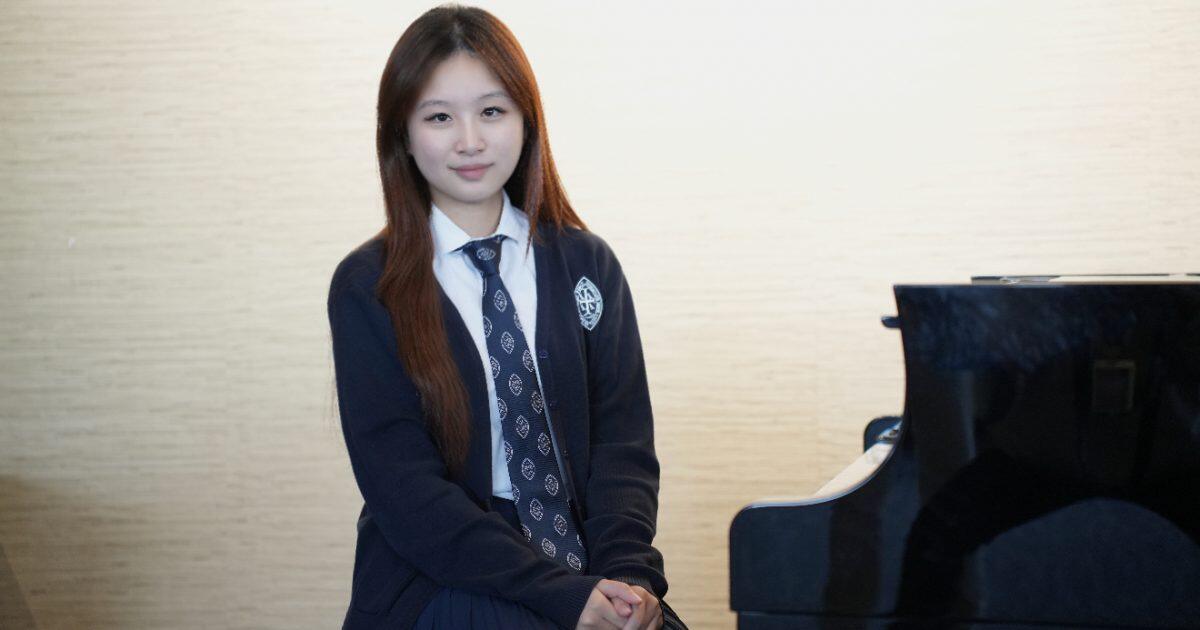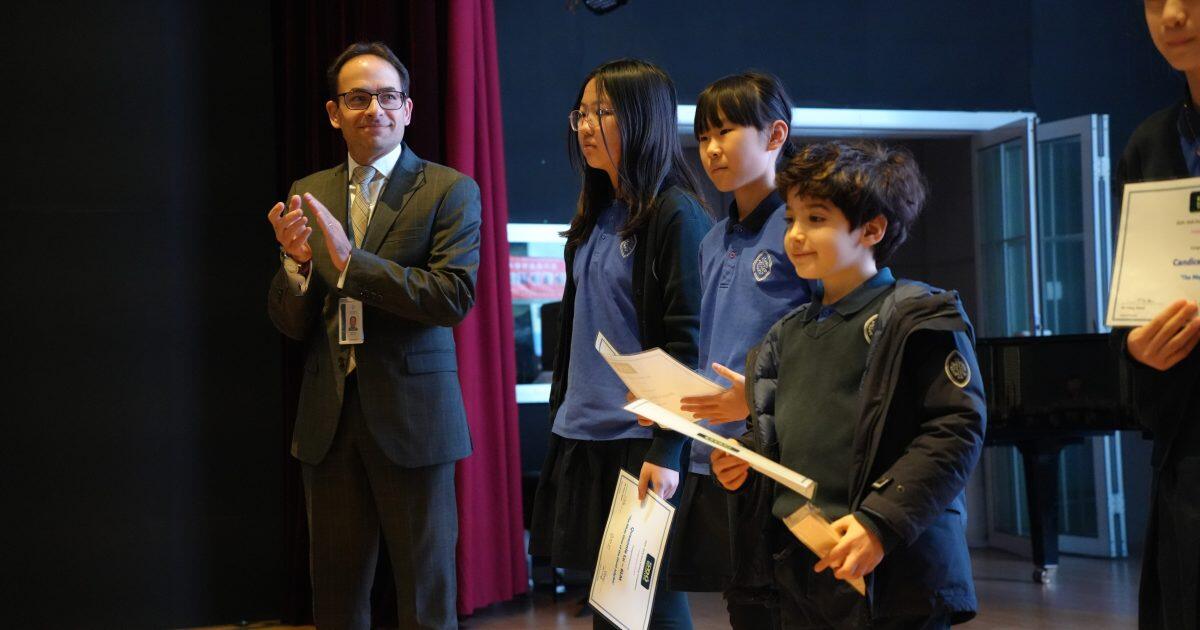Click the link to view the full version: WASCZ | An Education Dialogue Across Borders: Delegations from Wycombe Abbey UK Visit Again
In October, WASCZ was once again honoured to welcome two delegations from Wycombe Abbey UK. On 17-18 October, we hosted Mr Nick Woods, Deputy Head (Strategy & International), and Ms Claire Leong, Director of Global Links. Later in the month, on 28-29 October, Mr Patrick Sherrington and Ms Diana Rose, members of the Wycombe Abbey Board, also visited WASCZ. Following Mr Woods’s previous visit in May, these visits underscore the deepening, increasingly close partnership between the two schools, injecting renewed trust and understanding into the cross-border educational dialogue.
As the first sister school of Wycombe Abbey in China, WASCZ maintains frequent and meaningful interactions with its UK counterpart. During these visits, the delegations observed lessons, engaged in discussions with students and staff, and collaborated with the WASCZ team to envision the future of holistic education, further strengthening the educational ties that bridge East and West.
Founded in 1896, Wycombe Abbey UK is one of the UK’s most prestigious private schools, consistently ranking among the top academically. Each year, more than one-third of its students gain admission to leading universities such as Oxford and Cambridge. Today, Wycombe Abbey has four sister schools in China — in Changzhou, Hangzhou, Nanjing, and Hong Kong — and conducts multiple visits and exchanges annually, building a platform for deep collaboration within the WASCZ community and promoting the practice and development of holistic education.
In-Depth Exchange Strengthens Collaboration in Holistic Education
During their visits, the delegations held a series of productive meetings with WASCZ’s Executive Headmaster, Chinese Principal and school leadership teams from several divisions. Their discussions focused on key topics, including educational philosophy, management systems, curriculum planning, teacher development, and students’ holistic growth. Both sides explored ways to build on the existing collaboration between the two schools and further enhance the quality of holistic education and the student experience. “We are working towards the same purpose. We experience the same issues, and the more we can collaborate across the group and share knowledge, the better,” said Ms Rose.
During a subsequent tour of the campus, this first delegation gained a detailed understanding of WASCZ’s teaching facilities, boarding environment, and arts and sports programmes. They praised the school’s unique blend of international outlook and human-centred care. This was Mr Woods’ second visit to WASCZ, and he was full of praise for the school’s developments, particularly noting the newly renovated common room in the boarding houses: “Seeing the whole house gather here, we truly felt the sense of community and cohesion at WASCZ.”
Mr Woods and Ms Leong also enjoyed a warm exchange with members of the WASCZ Parent Committee, who shared candid feedback on educational practice, boarding life, and extracurricular opportunities. Mr Sherrington also saw important takeaways from engaging with WASCZ parents, commenting, “In our conversations with parents, we learned that the school has achieved remarkable results in pastoral and boarding management. Ultimately, the proof of the pudding is what the parents think.” From the prestigious Wycombe Abbey in the UK to every WASCZ family, the success of education is measured not only by classroom learning but also by the close collaboration between school and family, ensuring students receive comprehensive support and caring guidance.
Stepping into the Classroom: Witnessing WASCZ’s Teaching Excellence
Both delegations observed WASCZ’s teaching excellence in action.
Mr Woods and Ms Leong visited both the Lower and Upper Schools’ classrooms, gaining a close insight into WASCZ students’ learning engagement and teachers’ instructional strengths. In the classroom, students demonstrated curiosity and confidence in expressing their ideas, while teachers used thought-provoking questions and contextualised teaching methods to stimulate interest and deeper understanding.
In Lower School mathematics lessons, students explored numerical logic through hands-on activities, while in English lessons, they practised new vocabulary and language skills in simulated real-life scenarios. The lively and effective classroom atmosphere left a strong impression on Ms Leong. Later, Upper School lessons showcased students’ advanced academic thinking and interdisciplinary skills to the two visitors.
Mr Sherrington and Ms Rose also conducted important exchanges, visiting the Sixth Form Centre, where they heard students articulating their ideas fluently in English. These two visitors repeatedly praised WASCZ students’ focus, critical thinking, and analytical abilities.
After the lessons, delegations held feedback and discussion sessions with the school’s academic team. They exchanged classroom observations and shared insights from Wycombe Abbey UK on teaching research and classroom practice. This series of classroom observations and professional discussions further aligns the educational philosophies of both schools, providing fresh inspiration and direction for future teacher training and academic collaboration.
Experiencing Student Life: Feeling the Warmth of Holistic Education
Beyond the classroom, the delegations gained further insight into students’ daily lives. They engaged in meaningful conversations with WASCZ’s international scholars, hearing first-hand about their experiences with cross-cultural learning, academic challenges, and personal growth. They also communicated with and shared lunch with Lower School students, learning about their language studies and experiencing the relaxed, warm interactions between teachers and students.”The students are very friendly and curious about everything at Wycombe Abbey UK. Their enthusiasm left a deep impression on me,” shared Ms Leong.
As night fell, the delegations toured the boarding houses, observing students supporting one another, following routines, and developing a sense of belonging and responsibility. Soft conversations in the corridors, laughter and interactions in common areas, and caring gestures within the dormitories all conveyed the tangible warmth of holistic education.
Upholding the shared philosophy of holistic education with its UK sister school, the delegations witnessed how WASCZ nurtures not only students’ academic abilities but also their character, leadership, and social responsibility, laying a solid foundation for every child’s future.
Working Together to Build a New Vision for Holistic Education
Each year, WASCZ welcomes several visits from representatives of Wycombe Abbey UK, who bring fresh international perspectives and educational insights that strengthen the close collaboration between the sister schools. This latest visit not only deepened the exchange of educational philosophy and practice but also laid a solid foundation for even closer cooperation in the future.
As Mr Woods remarked, the most important goal is to ensure that closer collaboration benefits every student in the Wycombe Abbey community, continuously enhancing the educational standards and teaching quality of international schools. Ms Rose also expressed her commitment to exploring the full potential of educational connections, strengthening ties between WASCZ and Wycombe Abbey UK, and inviting more UK teachers to visit for mutual learning and exchange.
Their heartfelt messages perfectly reflect the essence of Wycombe Abbey’s holistic education philosophy — to build a closely connected international community where every pupil grows academically, morally, and globally, stepping confidently towards a brighter future.
More News



